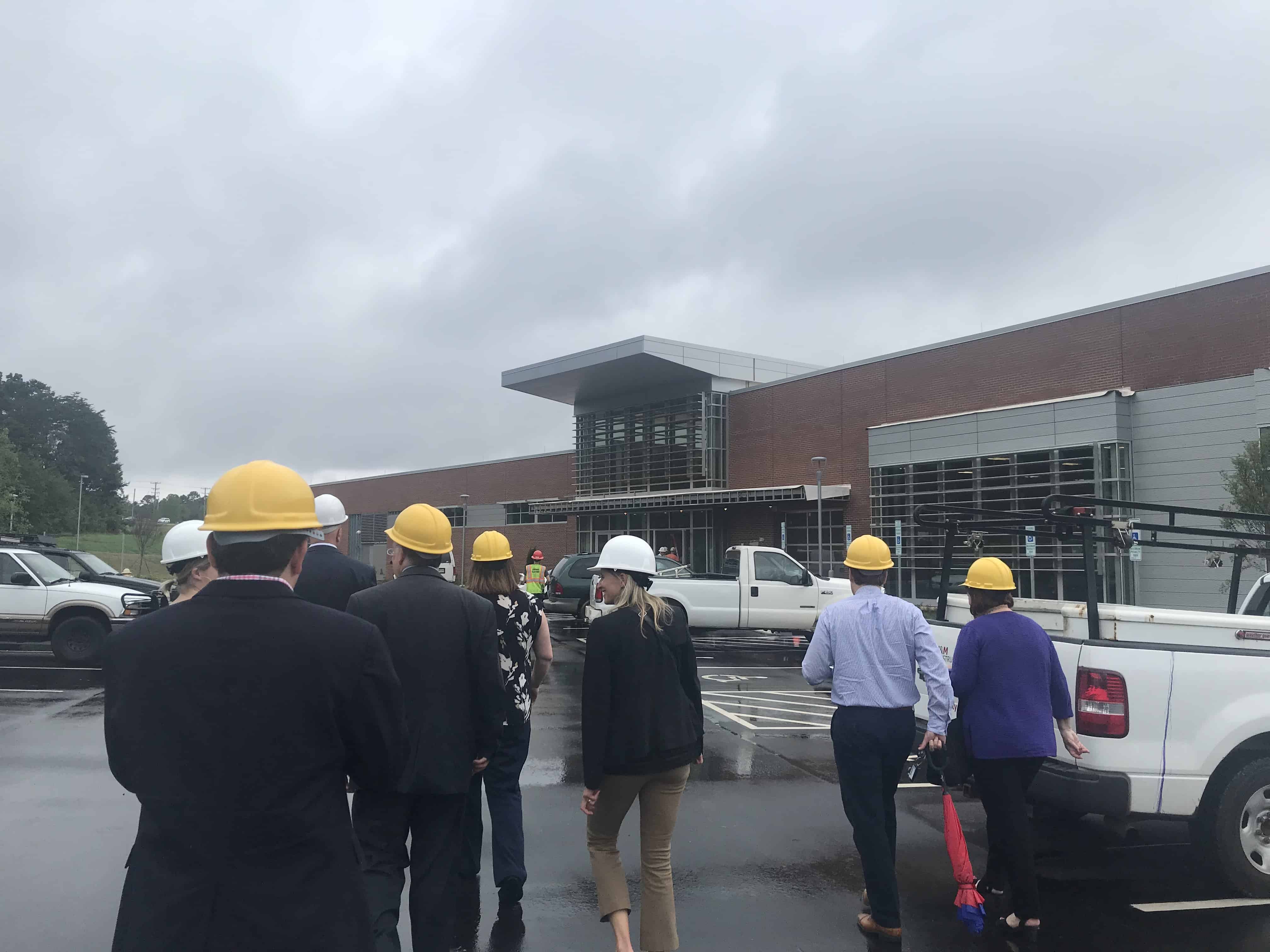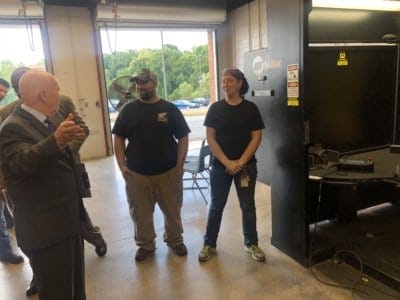Last week, I had the opportunity to return home to visit Catawba Valley Community College to explore their work with the K-64 learning initiative and other CVCC-led efforts to connect education to industry in the Unifour.
I was born in Morganton, grew up splitting time between family members in Deep Gap, Chesterfield, Piney, and Lenoir, and spent much of my teenage years driving to Hickory for entertainment and the backroads of Buffalo Cove for scenery. It is always good to be home, but it was particularly good to see the energy organizations are dedicating to new ways of tackling the challenges facing an area that I love deeply.
President Garrett Hinshaw and Mark Story, the CEO of K-64, launched our day together by speaking at length around their work to “have the strengths [of CVCC] meet the needs” of the region, as Hinshaw described it.
Here are five takeaways from our visit:
1. Economic development happens through the lens of a “talent war”
Hinshaw and Story described their work as equipping their region to participate in the “talent war,” in which every region across the country is engaging,through the continuous competition for economic development. Hinshaw was the first leader I’ve heard use the frame of “talent war,” but he explained the phrase by walking us through the occasional zero-sum game that is economic development.
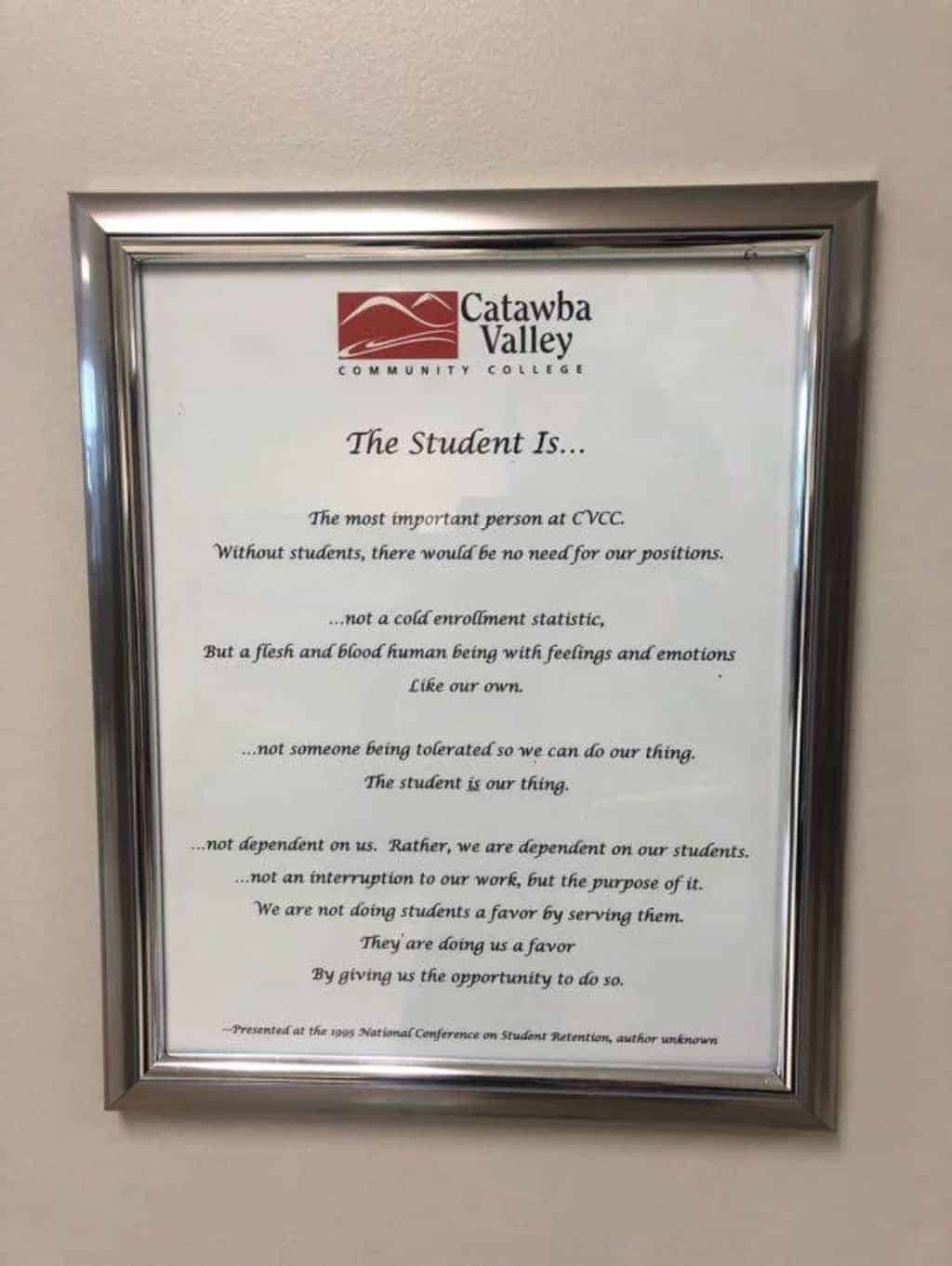

2. Aligning curriculum to career has been a focal point of the K-64 initiative
If it is a war, then K-64 is clearly the project which Hinshaw and Story see as the region’s secret weapon. The initiative is designed to change the trajectory of the region by increasing the availability and access of programs that ultimately connect education to workforce.
They do this through collaborating with employers to align courses of study, exposing students to real-world careers and curriculum choices, and more. One project, Education Matters, takes middle school students to visit STEM-based careers and illustrates how curriculum choices prepare them for that career. Priorities of the K-64 initiative include one-to-world technology, which Hinshaw and Story define as connecting every student with the technology they need and teaching soft skills.
3. Building unity among industry has played a significant role
Dan Gerlach, the President of Golden LEAF Foundation, also joined us. He told us the Unifour’s strength is “their workforce” and a “clear sense of unity.”
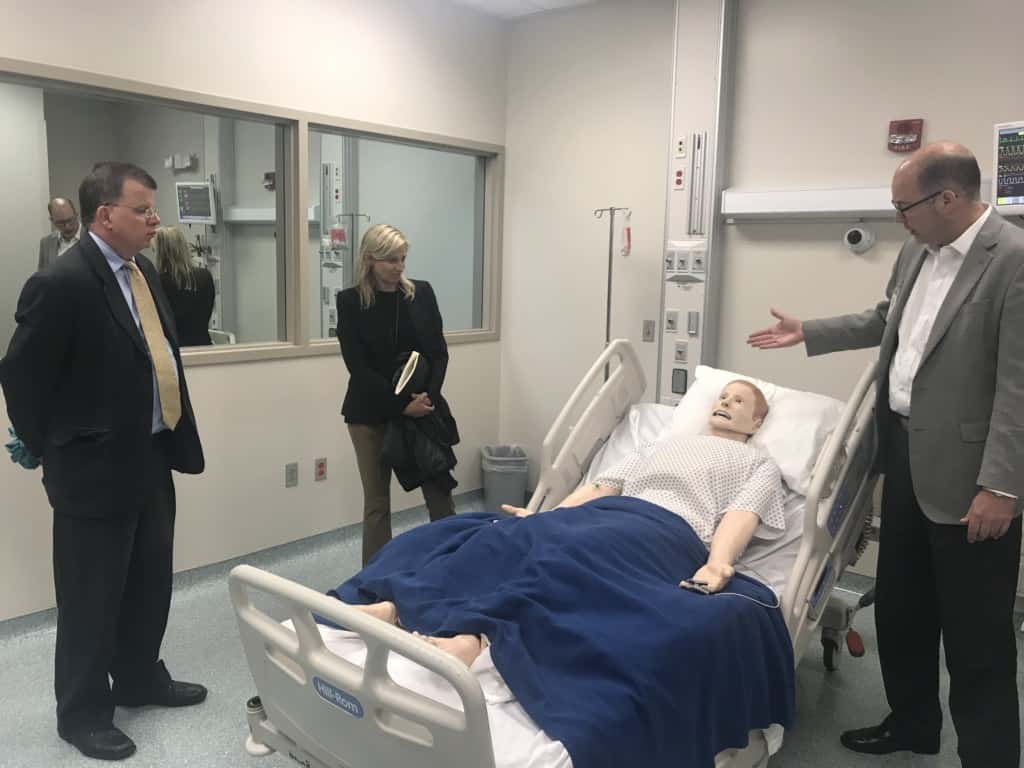

Hinshaw made it clear that unity had to be built as he described the decade-plus effort to build collaboration among area furniture manufacturers and other industry. One of the strategies to build collaboration was to recruit the heads of the various companies to join the Board of Trustees for CVCC in an effort to expose them to the college’s work.
“I just got out of the way,” Hinshaw said, as local industry wrote curriculum based on their needs, which included an increased emphasis on soft skill development prior to learning core competencies in many programs, including their furniture academy.
4. Increasing access to technology for all students is one tactic to level the playing field
Technology remains a larger challenge for many communities than some might suspect. We’ve heard of consistent challenges around broadband access, so much so that students in rural communities rely on McDonald’s for internet. One community college leader told me of a student who would do her work on her cellphone after her children fell asleep, while another recounted the story of a student who would drive to campus after midnight to do his homework in the car where he could access internet.
An early survey conducted on behalf K-64 indicated that 22.2 percent of K-12 students in Catawba Valley lacked a device in the home, which became an immediate focus of their work. Hinshaw noted it was fundamentally unfair to ask students who lacked access to basic technology to compete with those who did, so they have focused on getting devices to students.
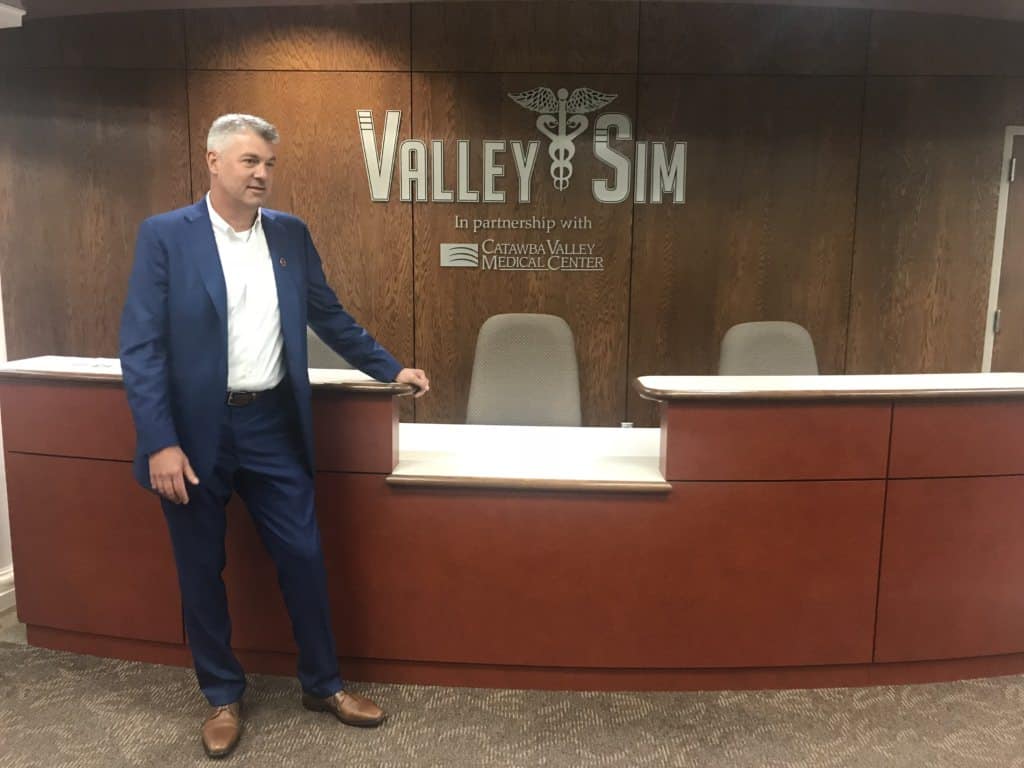

During the 2017-2018 school year, the K-64 board funded a Chromebook for every seventh-grader across the three school districts which serve Catawba County. The board voted to extend the project to every incoming sixth and seventh-grader in the district this school year, which means every middle school student in Catawba County will now have a device.
They also knew they needed to invest in training educators, so K-64 has already invested $250,000 in technology-focused training for middle school teachers with more investments ahead.
5. Increasing economic mobility is a primary measure of success for the CVCC team
The ultimate goal of the work of CVCC and K-64 can be described as increasing economic mobility for families across the region. Hinshaw noted that success for him looked a lot like two parents who approached him and thanked him for his work because their son, who was now making $12 an hour through certificates gained at CVCC, was making more than the parents combined.
Community college leaders across the state are focused on mobility. One administrator told us, “I get up every single day focused on increasing economic mobility for families across North Carolina.”
As efforts such as myFutureNC focus on setting degree attainment goals for the state and various organizations explore what the true measure of success for our community colleges looks like, it is important to recall this emphasis on mobility. I’d encourage individuals to follow the work of the CLIMB Initiative to track research around the connection between postsecondary institutions and mobility.
At the end of August, our team will travel to all 58 community colleges over the course of eight days, and I will return to CVCC and other community colleges in the area to go deeper on the lessons they have learned from this work.
